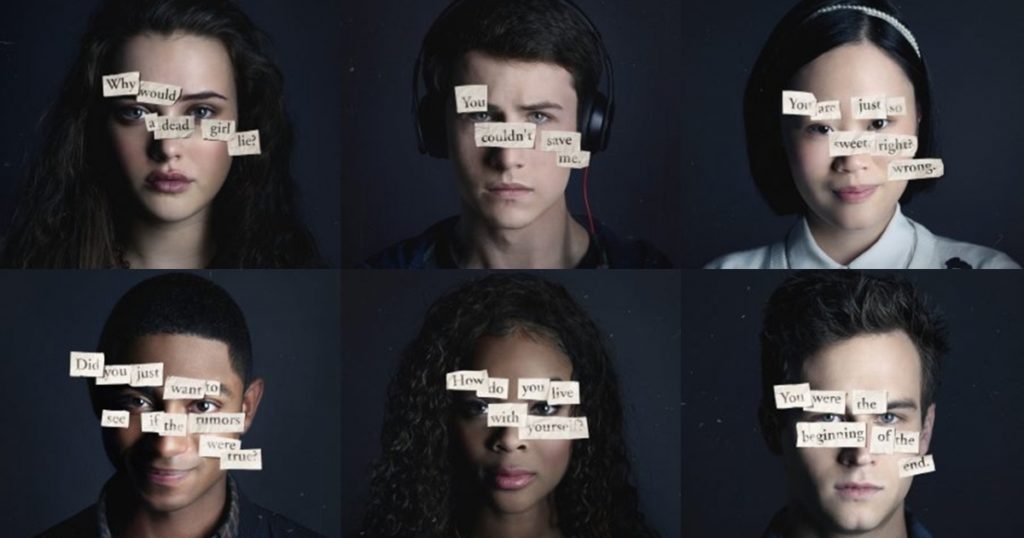The other week kids around the country were dealt a dangerous blow when Netflix renewed the controversial “13 Reasons Why” for its third season.
At first glance, it’s a network series that documents the events that lead up to — and after — a teenager’s suicide. But, once you wash away the Hollywood spin on it, kids are left with something worse: a show that glamorizes suicide.

Since the series’ debut, alarming reports and studies have come out citing the show for an increase in teen suicides. There has been an uproar, but the ones who matter — the executives who green light programs at Netflix — have turned a blind eye.
This decision to continue with the series is dangerous and I’m truly appalled.
The viewers of “13 Reasons Why” are young. In fact, the show trends with elementary, middle school and high school students. These students are at risk for committing suicide. Why? Because they see Hannah Baker, a seemingly popular, pretty, yet troubled teen, end her life and are essentially being given permission to do the same.
Network executives at Netflix ignore reports on teen suicide, they bury their head in the sand when it comes to the fact that traditional networks don’t talk about suicide on air because of the risk of copy cat behaviors. No one holds Netflix to the same standards as the traditional networks. Why?
Copy cat behavior is a very real, and very dangerous thing. It occurs because certain populations — mainly pre-teens and teens — are insecure and look to find similar people to mirror. Just like someone would copy a popular kid wearing the latest fashion, kids cling to — and copy — emotions and behaviors to “fit in”. Or, in this case, to commit suicide because they see it being done presented as a viable solution to their teenage problems.
Shows like this can also give way to suicide clusters, meaning if one person kills themself, it gives “permission” for others to do the same. It happened in Parkland when one survivor committed suicide. Soon, two more followed suit. When a show glorifies suicide, it removes the stigma and becomes a realistic option … and suicide never should be.
“13 Reasons” gives permission to kids who aren’t stable, who are insecure, who are not developmentally robust in their core, to end their lives if they have a bad day, or if it seems like life is awful. The show has made depression and suicide trendy. If you look at Instagram, there are a number of shocking accounts and hashtags that normalize suicide, that encourage promoting depression. Just search #darkdays and you will find tons of accounts most parents have no clue exists.
There’s a real danger in what’s going on right now. These ideas of suicide as a solution are being put into kids’ heads and when they see a television character take the route of suicide, they see it as a viable option.
As a parent and psychologist who works with vulnerable youth, I want Netflix to tell me where they draw the line between selling a story that is drawing viewers and the fallout from the massive increase in emergency room admissions for suicidal teens.
How can they ignore the outrage related to the significant amount of reported distress by sexual assault victims having to relive a real-life event through the show’s graphic visual description of rape? And if Netflix wants to argue that they commissioned research to determine if there was an impact, they can do so. But, the reality is they asked college students, not teens and younger, if it influenced them. The people influenced and impacted by the show are ages 10-14, not those who were in the study.
How are we supposed to handle the glorification of making a martyr out of someone that took their life to this highly impressionable consumer?
At what point will Netflix have experts weigh in on this issue who actually have experience with the impact of this show versus their paid talking heads who haven’t had a teenager in front of them in more than a decade?
Will Netflix executives ever sit with a family grieving over the loss of their child? Or sit with a child who has been assaulted and has been re-traumatized through the constant discussion of how much the system is broken?
Since it’s become apparent that Netflix and the media won’t stand up for children, I need to. And, so do you.
Start a discussion with your child about the show. About suicide. About how to deal with negative thoughts and feelings and how to climb out of depression.
If “13 Reasons” continues, it’s our only option to protect the vulnerable and impressionable ones we love.
Learn more about how to protect your child today.




